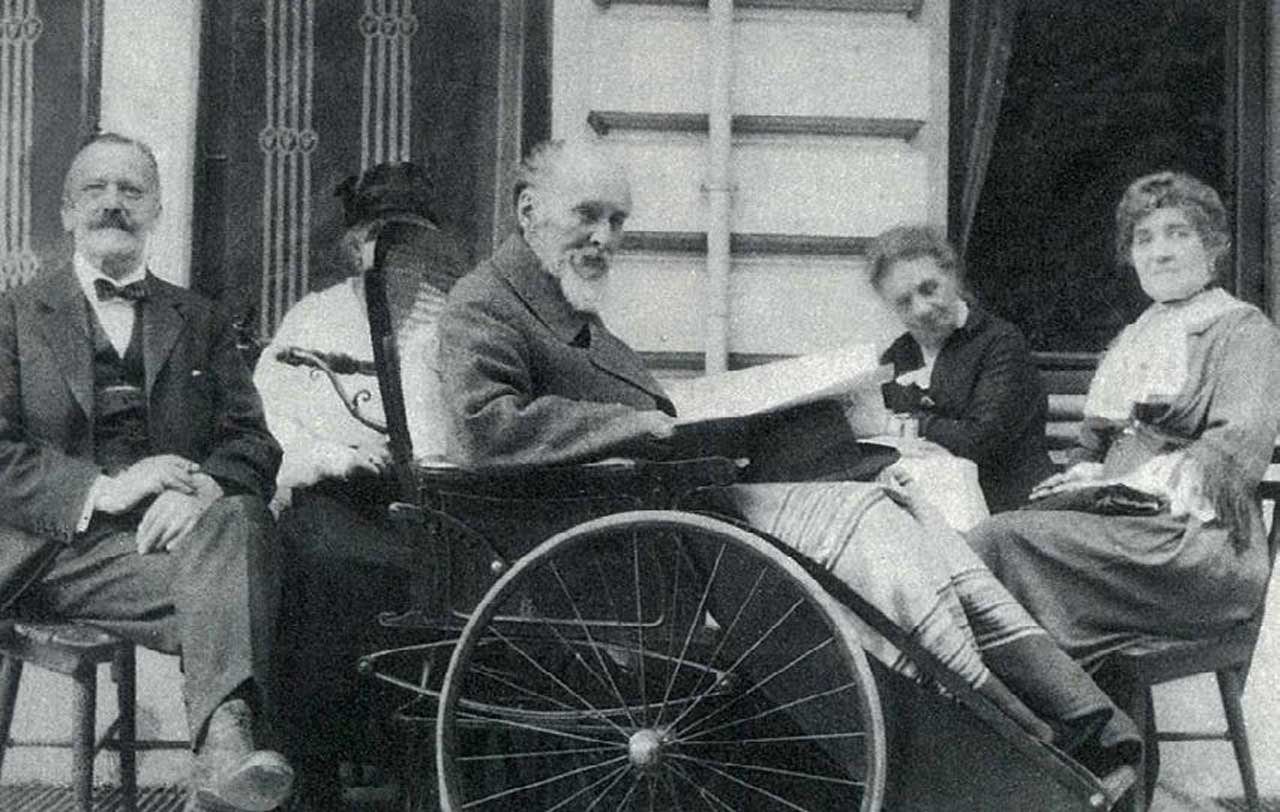Fabergé in Germany
On the 100th anniversary of the death of probably the best known jeweller in the history of the world
On 17 September 2020, the man who was probably the best known jeweller in the history of the world and former court jeweller to the tsars Alexander III and Nicholas II, Peter Carl Fabergé, was honoured in Wiesbaden on the occasion of the 100th anniversary of his death.
One thing many people don’t know is that Fabergé lived in exile in Wiesbaden between 1918 and 1920 after having fled from the Russian October Revolution. In memory of him, a rogation service was held by Archbishop Mark Arndt of Munich, metropolitan of the Russian Orthodox Church for Berlin and Germany. As well as a major Fabergé icon of St. Nicholas (from the Fabergé Museum in Baden-Baden), the international visitors also had the chance to admire a model of the wheelchair Fabergé used while he was in Wiesbaden.
After a visit to the Russian cemetery, a commemoration was held on the “Neroberg” in Wiesbaden. Following more than 4 years of research into facts and records relating to Fabergé’s time in the spa town, the art historian and promoter Horst Becker presented its main milestones. He explained that on 30 May 1920, in the luxurious Hotel Imperial opposite the spa gardens, Fabergé, in his wheelchair, had celebrated his 74th and last birthday with 15 friends from St. Petersburg. He left Wiesbaden at the beginning of June 1920.
Before the plaque in honour of Fabergé was handed over to the metropolitan of the Russian Orthodox Church for Berlin, Constantin Wild provided some background to the event with a talk about the relations Fabergé had had with Idar-Oberstein, and about his own family history.
In 1845/46, his great-grandfather, Johann Carl Wild IX, coming from the gemstone capital, worked for two years as a goldsmith’s apprentice in St. Petersburg – the business headquarters of the Fabergé jewellery workshop and, at that time, the world centre of haute joaillerie (the art of goldsmithery). Accordingly, he was given the name ‘Russ-Carl’ when he returned to Idar and founded the family business in 1847. The ensuing boom was attributable to sculpture engraving and thus also to the incentives provided by Carl Fabergé as a client around the turn of the century.
This common past was probably also the reason for Constantin Wild’s visit to Russia in 1987, probably one of the first made by a West German. Thanks to his interest in the rare but beautiful Russian demantoids, Constantin Wild played an important role in the rediscovery of these wonderful stones, which had already become legendary in Fabergé’s jewellery but disappeared completely from the world market since the Russian Revolution.




